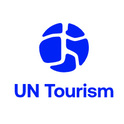The Philippines will host the 6th UNWTO Conference on Tourism Statistics
Policy leaders, statisticians, academicians and private sector will convene in Manila, The Philippines, next June 2017 (21-24), to discuss new methodologies to measure the full impacts of tourism. The 6th edition of the World Tourism Organization (UNWTO) International Conference on Statistics, an official event of the International Year of Sustainable Tourism for Development 2017, will address the topic of 'Measuring Sustainable Tourism'.
Supported by the United Nations Statistics Division, the UNWTO initiative 'Towards a Statistical Framework for Measuring Sustainable Tourism' (MST) underlines the need to measure the full effects of the tourism sector. The UNWTO International Conference to be held in Manila will serve as a platform to discuss the first draft of the MST framework and its future implementation.
The Philippines has become a reference in the region with regard to tourism measurement and a role model in the development of effective inter-institutional collaboration to develop tourism statistics. The commitment of the country, shown in the development of the Tourism Satellite Account framework, explains the decision to host the discussion on the MST initiative.
A Ministerial Roundtable will inaugurate the Conference in order to align efforts to advocate among governments the relevance of integrated and reliable data to manage and promote a more sustainable tourism sector. Afterwards, a Panel of Statistical Institutes will provide the opportunity to share experiences and practices implemented at global, regional and national level.
Other technical sessions will focus on understanding data demands, the link between the economic, the environmental and the social dimensions of sustainable tourism, including job creation, sub-national measurement, Sustainable Development Goals (SDGs) indicators, and data sources including big data.
Besides policy leaders, statistical experts and private sector, representatives from international organizations such as the International Labor Organization (ILO), the Organization for Economic Co-operation and Development (OECD), the United Nations Statistics Division (UNSD) and Eurostat will also contribute to the discussions.
About UN Tourism
The World Tourism Organization (UN Tourism) is the United Nations agency responsible for the promotion of responsible, sustainable and universally accessible tourism.
As the leading international organization in the field of tourism, UN Tourism promotes tourism as a driver of economic growth, inclusive development and environmental sustainability and offers leadership and support to the sector in advancing knowledge and tourism policies worldwide.
Our Priorities
Mainstreaming tourism in the global agenda: Advocating the value of tourism as a driver of socio-economic growth and development, its inclusion as a priority in national and international policies and the need to create a level playing field for the sector to develop and prosper.
Promoting sustainable tourism development: Supporting sustainable tourism policies and practices: policies which make optimal use of environmental resources, respect the socio-cultural authenticity of host communities and provide socio-economic benefits for all.
Fostering knowledge, education and capacity building: Supporting countries to assess and address their needs in education and training, as well as providing networks for knowledge creation and exchange.
Improving tourism competitiveness: Improving UN Tourism Members' competitiveness through knowledge creation and exchange, human resources development and the promotion of excellence in areas such as policy planning, statistics and market trends, sustainable tourism development, marketing and promotion, product development and risk and crisis management.
Advancing tourism's contribution to poverty reduction and development: Maximizing the contribution of tourism to poverty reduction and achieving the SDGs by making tourism work as a tool for development and promoting the inclusion of tourism in the development agenda.
Building partnerships: Engaging with the private sector, regional and local tourism organizations, academia and research institutions, civil society and the UN system to build a more sustainable, responsible and competitive tourism sector.
Our Structure
Members: An intergovernmental organization, UN Tourism has 160 Member States, 6 Associate Members, 2 Observers and over 500 Affiliate Members.
Organs: The General Assembly is the supreme organ of the Organization. The Executive Council take all measures, in consultation with the Secretary-General, for the implementation of the decisions and recommendations of the General Assembly and reports to the Assembly.
Secretariat: UN Tourism headquarters are based in Madrid, Spain. The Secretariat is led by the Secretary-General and organized into departments covering issues such as sustainability, education, tourism trends and marketing, sustainable development, statistics and the Tourism Satellite Account (TSA), destination management, ethics and risk and crisis management. The Technical Cooperation and Silk Road Department carries out development projects in over 100 countries worldwide, while the Regional Departments for Africa, the Americas, Asia and the Pacific, Europe and the Middle East serve as the link between UN Tourism and its 160 Member States. The Affiliate Members Department represents UN Tourism's 500 plus Affiliate members.
Rut Gómez Sobrino
Principal Media Officer
(+34) 91 567 81 60
UN Tourism
